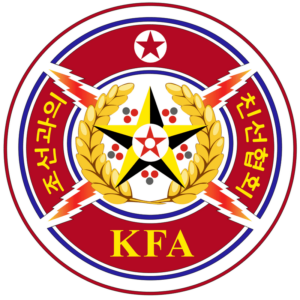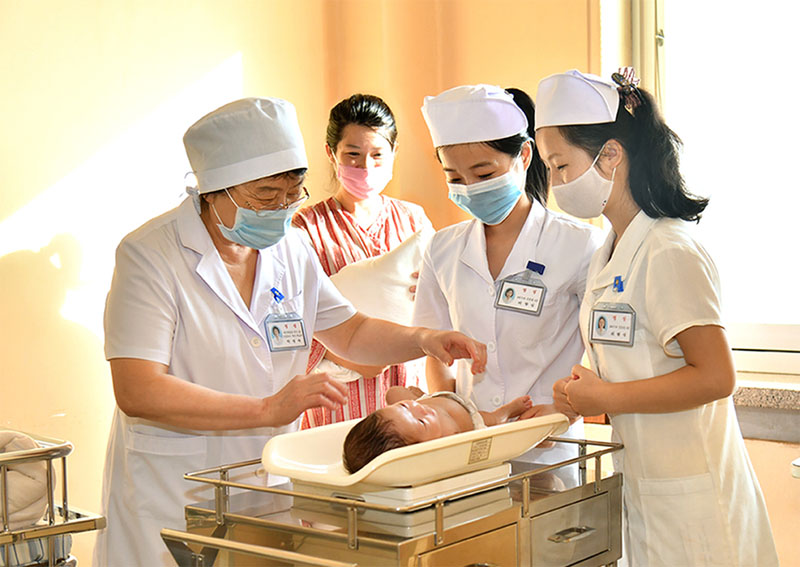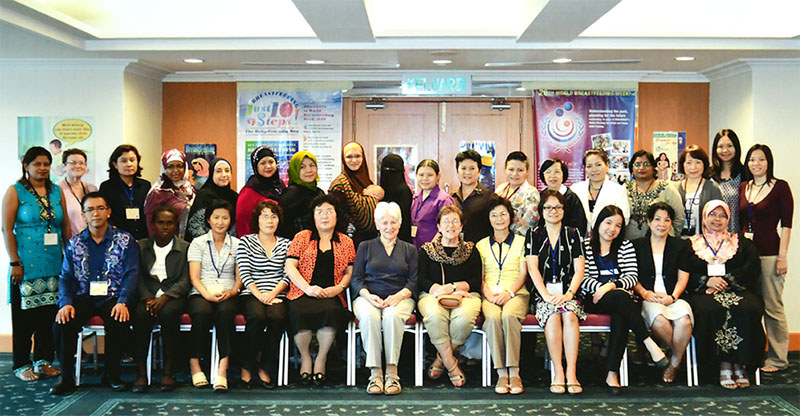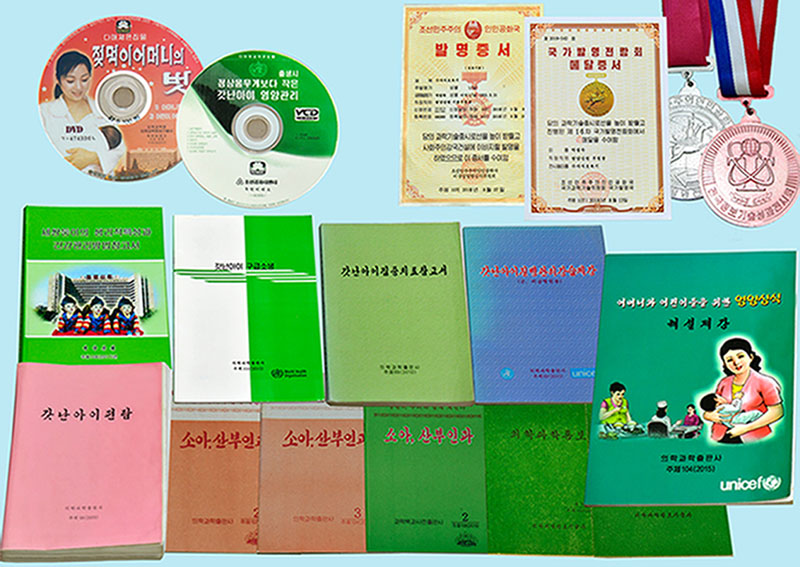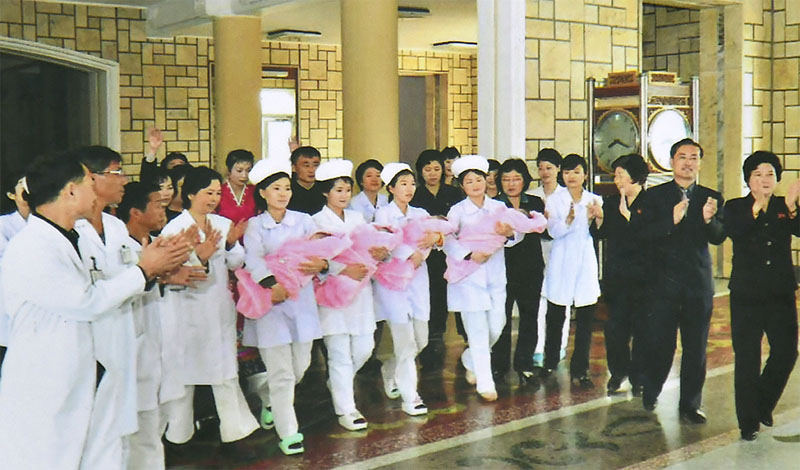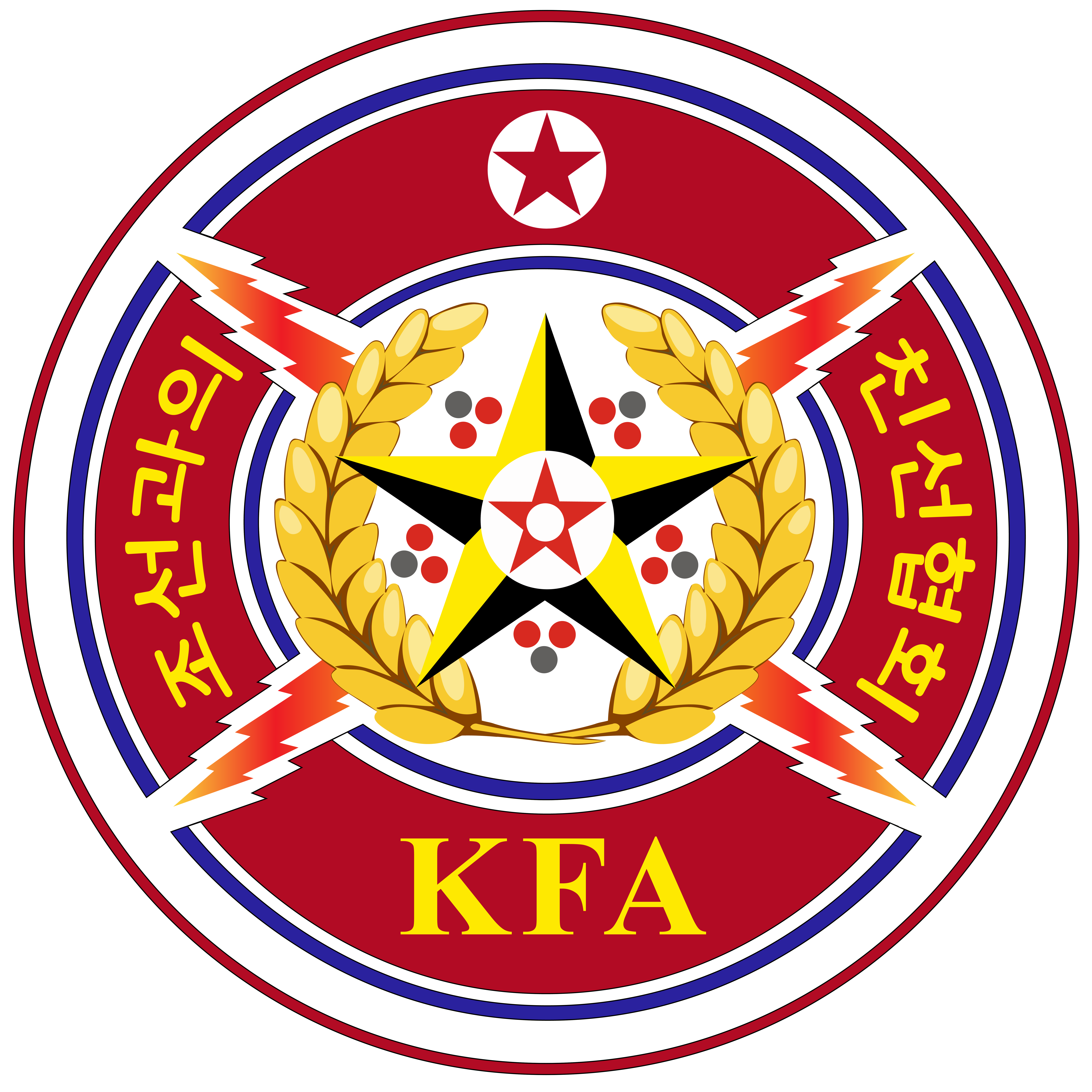News
“Mother” of Babies.
Among those who celebrate Mother’s Day, November 16, in the DPRK is Pak Song Suk, deputy chief in charge of technical affairs of the Pyongyang Maternity Hospital.
On this day she recollects her medical career begun and peaked with that of the Pyongyang Maternity Hospital.
Pak was born into a workers’ family in Chonnae County, Kangwon Province, in 1955. As a little girl she was very fond of growing flowers and trees, so her childhood friends believed she would become a horticulturalist or a botanist in the future. When Pak finished her secondary education course and matriculated at the Pyongyang University of Medical Sciences, her friends did not think they made a wrong expectation. A horticulturalist takes care of flowers and plants, while a doctor people’s health, they thought.
Pak graduated from the university with honours and became a doctor at the Pyongyang Maternity Hospital inaugurated in July 1980.
She worked with devotion to nurture new-born babies, but she felt her lack of knowledge and capability.
It was not easy to judge correctly the conditions of the newborns without proper faculties for expressing their needs and troubles and take proper measures. And there were few detailed reference books for nursing triplets and quadruplets that were born premature.
One day she read an article by a horticulturalist, who said scientific principles were not all needed in cultivating flowers, and realized that she should devote herself to caring the babies.
Since then she visited veteran doctors in the field of maternal and infant health care to learn from their experience. She also sought for the hospitals and doctors that had assisted in the delivery of multiple births to collect relevant materials.
In the course of this she developed her medical skills and enriched experience sufficiently enough to systematize scientific nursing methods of newborn infants.
She was known at the hospital as the most excellent doctor in caring babies, but she was not content with it. She wanted to transfer her decades-long-acquired knowledge and experience to not only her colleagues and juniors but also ordinary mothers to help them nurse and bring up healthy children.
Though she was busy with her medical service, she wrote a lot of scientific papers, journals and books as well as designed multimedia products on nutrition and healthcare of infants. She compiled in 2009 the book on caring babies, which serves as a must reader for professionals and university students.
Pak is honoured with the titles of People’s Doctor, PhD and associate professor. She also participated in the fourth national meeting of mothers and other national conferences.
She is now a grandmother in her family, but she is still addressed as “dearest next to natural mother” of babies born in the Pyongyang Maternity Hospital.
